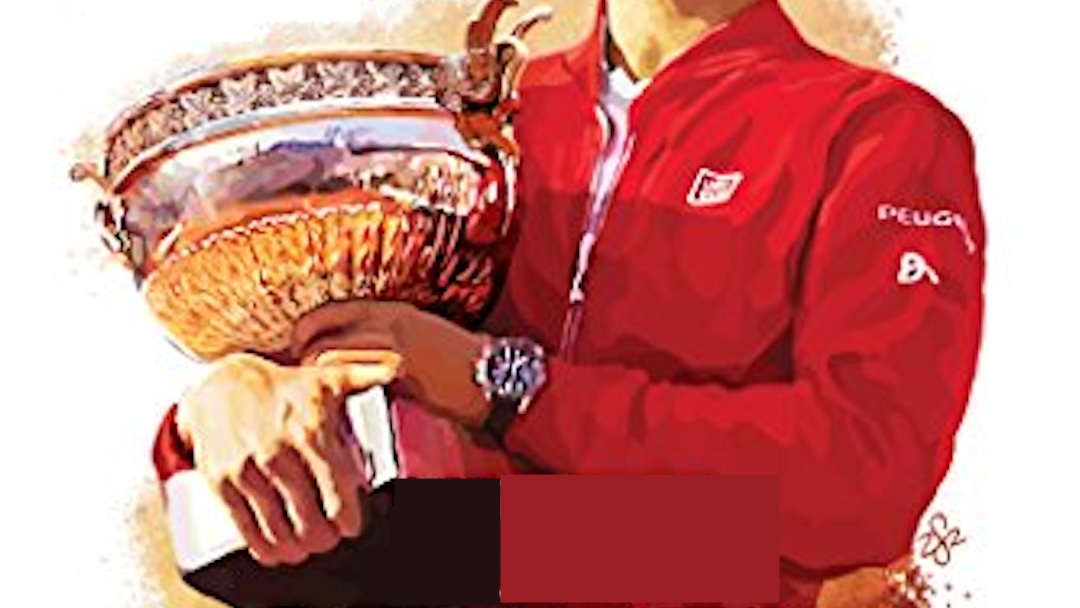Managing pressure and stress is vital for tennis players at all levels. It impacts focus, physical performance, decision-making, consistency, mental toughness, competitive edge, and — most importantly — enjoyment of the game. Effective stress management techniques enable players to perform at their best, handle the ups and downs of the sport, and achieve their full potential.
“Wild Card: Mastering the Mental Game in Tennis, in Sport, and in Life” by WTA tennis player Laura Siegemund and Dr. Stefan Brunner is billed as a resource for learning mental strategies from a top professional player. The book was originally published in Germany in 2022, and the recent English translation edition arrived on my doorstep just last week.
Siegemund has enjoyed some success on the WTA professional tour. She currently has just shy of $6 million in total career earnings and peak rankings of 27th in singles and 4th in doubles. She has also won 16 tournaments at the tour level, 14 of which were in doubles. Siegemund isn’t a household name in tennis, but she isn’t exactly a journeyman either. I view her as a player who has maximized her natural tennis abilities largely due to the strength of her mental fortitude.
When reading the English edition of this book, it is immediately apparent that it was originally written for a German audience. The other athletes and notable public figures used as examples throughout are almost exclusively from that part of the world. While the unfamiliar names don’t detract from the value of the information, it might mute the strength of the message for some readers.
Wild Card is written as a conversation between Siegemund and her co-author, Prof. Dr. Stefan Brunner. The chapters are organized according to the major phases of a tennis match. As a result, it is fairly easy to page through the book to find situationally appropriate advice. While the broad strokes of the contents are what other mental tennis books typically offer, the specific details are delivered with German precision backed up by scientific references. It is a style that resonates with me.
To provide a glimpse into the types of unique detail in the book, the authors recommend using somatic markers to establish and recreate a physiological response on the court. For example, if a player clenches their fist in response to successful points, repeating that movement can recreate that sensation even after points that have not gone well. While evidence of players using that practice on the court abounds in televised professional tennis, it is nice to have the somatic marker term to conceptualize and potentially apply it.
The final chapter of the book is dedicated to personal development. It starts with the concept that careers should result from intentional design, which is closely aligned with the “Designing Your Tennis Life” series currently running on this site. That chapter transcends what happens on the court to examine success and happiness in life. Consequently, this book contains a surprising amount of detail on searching for meaning and finding identity.
This book can provide a fresh perspective to guide your tennis mental training. It offers deep insights into managing the mental complexities of matches and tournaments and delivers the tools necessary to overcome the mental hurdles standing between athletes and peak performance.

Wild Card: Mastering the Mental Game of Tennis (<- Sponsored Link)
While “Wild Card: Mastering the Mental Game in Tennis, in Sport, and in Life” isn’t going to cause anyone to remove “The Inner Game of Tennis” or “Winning Ugly” from their bookshelf, this new offering from Laura Siegemund and Stefan Brunner makes significant contributions to the practice of mental fitness in tennis. While the book was written for elite athletes in Germany, it is a valuable resource for players of all levels and nationalities.
Fiend At Court participates in the Amazon associates program and receives a paid commission on any purchases made via the links in this article. Details on the disposition of proceeds are available on the “About Fiend at Court” page.



